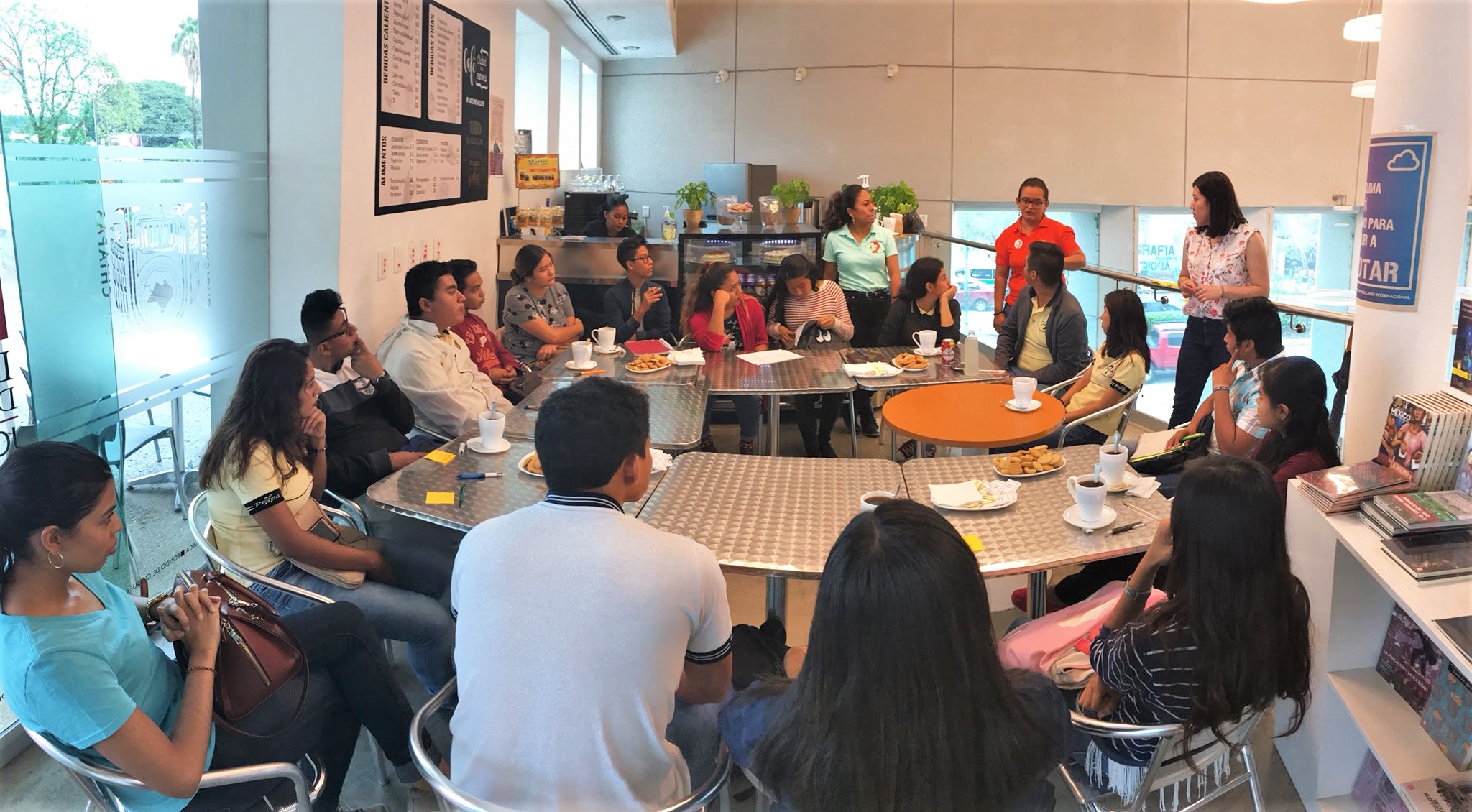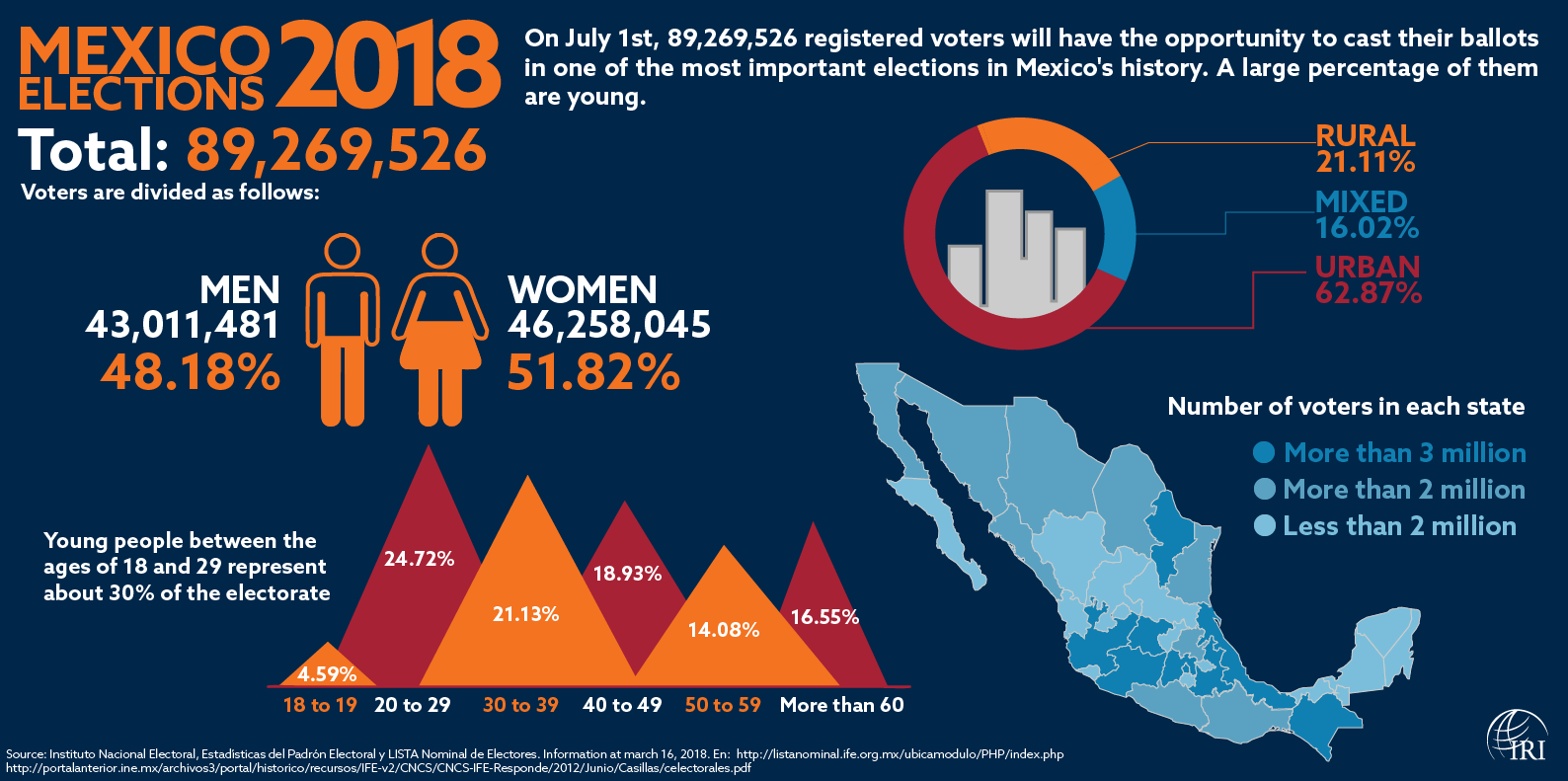
Mexico stands on the brink of historic elections. On July 1, 2018, Mexican citizens will elect a new president and over 3,400 officials across the country. With three leading presidential candidates representing parties from across the political spectrum, the decision of voters will have a significant effect on politics and public policy for years to come. Youth, women and undecided voters will play a critical role in determining the outcome of the current electoral cycle. As the election approaches, it is essential to protect and ensure each of these voters can make their voices heard.
The Youth Vote
Young voters, an often overlooked and underestimated part of the electorate, represent about 30 percent of eligible voters and, as such, will have a tremendous impact on election results. If every voter under the age of 35 voted for the same candidate, that candidate would win. Assuming that youth turn out to vote. Despite their potential political influence, youth often feel disillusioned by the corruption and adversarial rhetoric that characterizes political discourse in Mexico. The challenge is to get youth to see the credibility and importance of the election process. One way to achieve this is to increase civic education opportunities that provide impartial information on processes and policies that safeguard election integrity.

The Undecided Vote
According to a recent poll, 27.8 percent of voting-eligible respondents remain undecided as to who they will support in the upcoming presidential election. The high percentage of undecided or unsure voters can be attributed to several factors including an inability to distinguish between the policy positions of different candidates, an oversaturation of conflicting campaign messages and a general distrust of politicians. In order to win the support of undecided voters, candidates must understand the needs, desires and perspective of citizens in order to develop effective public policy. Failure to do so could lead to further citizen disillusion of elected leaders’ ability to propose and enact meaningful change, thereby undermining voter trust in political institutions.
The Women Vote
Even with progressive gender parity laws, women in Mexico hold few influential political positions. However, this does not diminish the large influence that women, who make up about 52 percent of Mexico’s electorate, will play in determining the officials and issues that will be at the forefront of the new administrations.
Unfortunately, Mexico is facing unprecedented levels electoral violence and intimidation, which has uniquely threatened women candidates and the ability of women to make their voices heard during this voting season. Alongside the machismo culture that still characterizes Mexican culture and devalues women’s ability to succeed in leadership roles, women candidates and journalists face the threat of assassination and regular rape threats. It is necessary for government officials and civil society to address the unique factors and security risks that prevent women from running for office or going to the ballot box on Election Day. If women are unable to appear on the ballot or in the voting booth, over half of the voting population will be unrepresented in the government.
By ensuring that all voters, regardless of age or gender, are informed and able to vote and campaign, Mexico will ensure the political inclusion of a diversity of perspectives and reinforce the stability of its democracy during this consequential electoral and political period.
Top